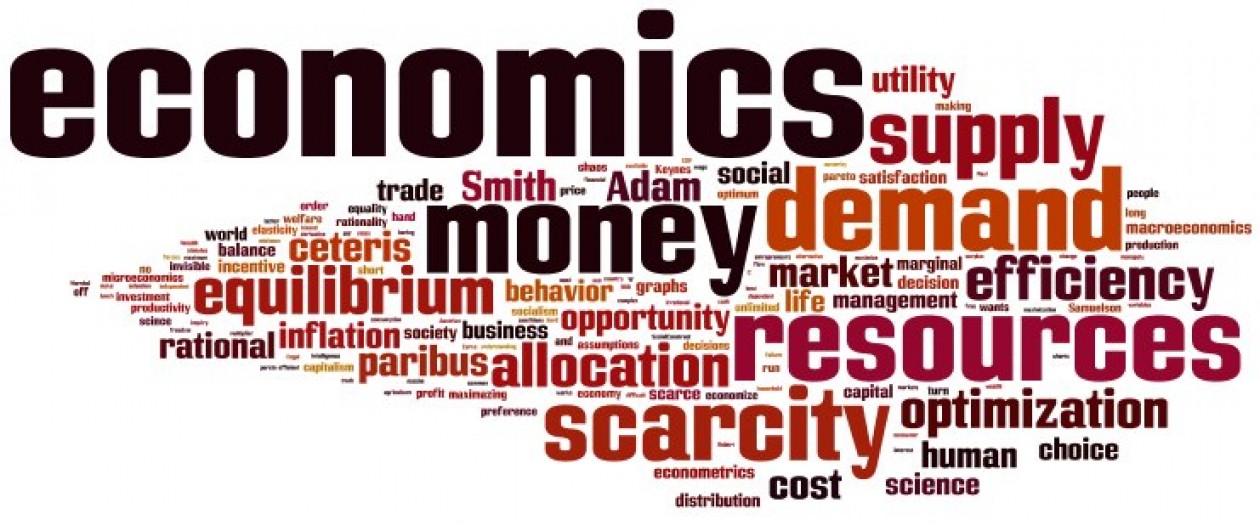Essay on Relationship Between Sociology and Economics – Sociology and economics as social sciences have close relations. Relationship between the two is so close that one is often treated as the branch of the other.
According to Thomas, “Economics is, in fact, but one branch of the comprehensive science of sociology “. In the words of Silverman, “It may be regarded for ordinary purposes, as an offshoot of the parent science of sociology, which studies the general principles of all social relations”. But this does not mean that economics is a branch of sociology.
ADVERTISEMENTS:
Economics:
Economics deals with the economic activities of man. Dr. Alfred Marshall defines economics as “On the one side the study of wealth and on the other and more important side a part of the study of man”. Prof. Lionel Robbins defines economics as “the sciences of human behaviour in its relations with ends and scarce means which have alternative uses”.
It can also be understood as the science of wealth in its three stages namely: production, distribution and consumption.
Economics studies man as a wealth-getter and a wealth disposer. Wealth constitutes the central problem of economics. It studies the interrelations of purely economic factors and forces: the relations of price and supply, money flows, input-output ratios and the like.
ADVERTISEMENTS:
It studies the structure and function of economic organisations like banks, factories, markets, business firms, corporations, transport, etc. Recently economists have shown more interest in motivation behind man’s economic action.
Sociology and Economics are mutually helpful:
Economics and sociology are helpful to each other. Economic relationships bear a close relation to social activities. At the same time social relationships are also affected by economic activities. Because of this close relation Thomas regarded economics as the branch of Sociology. But this is an extreme view. Economics, it may be specified here, is an independent science.
Social Interpretation of Economic Changes:
ADVERTISEMENTS:
Some economists, like Sombart, Max Weber, Pareto, Oppenheimer, Schumpeter have explained economic change as an aspect of social change. According to them, the study of economics would be incomplete without an understanding of human society. Economic system is embedded in the social structure as a part of it.
The society, its structures, its organisations, its institutions, its strength and weaknesses etc., are bound to affect the economic activities of its people. That is why a celebrated modern economist has said that “Economics must be made the handmaid of sociology”.
Max Weber, a German sociologist, made classical attempt to show how social factors, and particularly, religious beliefs and practical ethics influence the economic activities of people. He made this clear in his celebrated book. The Protestant Ethic and the Spirit of Capitalism.
His contention is that the progressive protestant ethic provided the stimulus to the rapid growth of capitalism in the West, whereas Hinduism and Buddhism, with their so called fatalistic approach, failed to stimulate the growth of capitalism in the East.
Economic Interpretations of Social Changes:
At the other end, there are environmentalists like Karl Marx and Veblen according to whom social phenomena are determined by economic forces. According to them social reality or social change can be explained in terms of economic forces.
According to Marx, the infrastructure of a society is nothing but the economic relations among its people. However, there is a growing awareness among social scientists about the mutual interplay between the economic and non-economic forces of society.
Sociologists have contributed to the study of different aspects of economic organisation. Knowledge of property system, division of labour, occupations, industrial organisation, etc., is provided by a sociologist to an economist. Such matters as labour relations, standard of living, employer- employee relations, social classes, socio-economic planning, socio-economic reforms, etc., are common to both economists and sociologists.
The area of co-operation between sociology and economics is widening. Economists are now analysing the social factors influencing economic growth. Economists are working with the sociologists in their study of the problems of economic development in underdeveloped countries. Economists are more and more making use of the sociological concepts and generalisations in the study of economic problems.
Further, there are certain socio-economic problems of greater importance to be studied by both economists and sociologists. Such problems like poverty, beggary, unemployment, over-population, unregulated industrialisation have both social and economic implications. Combined studies of both the experts in this regard may be of great practical help in meeting the challenges.
Difference between Sociology and Economics:
In spite of the inter-relationship between the two sciences, they are different. Points of differences between the two are mentioned here.

